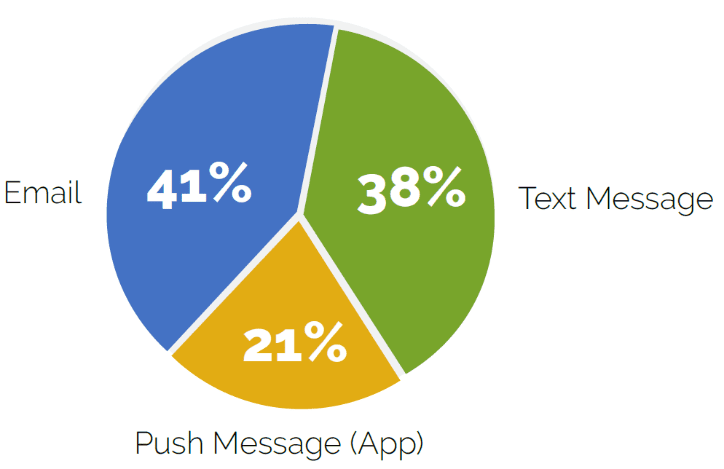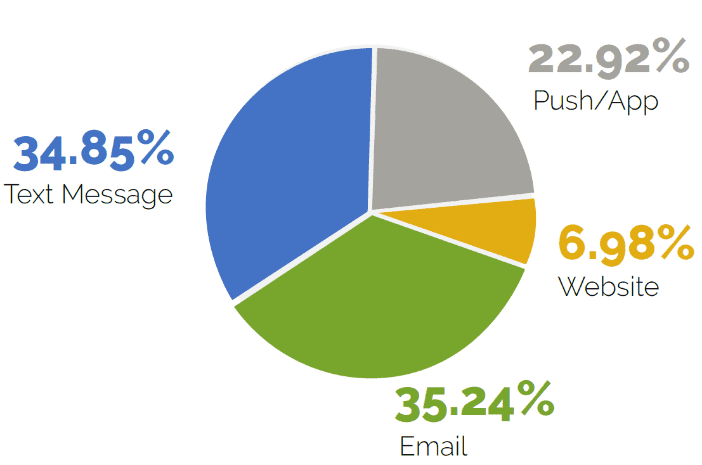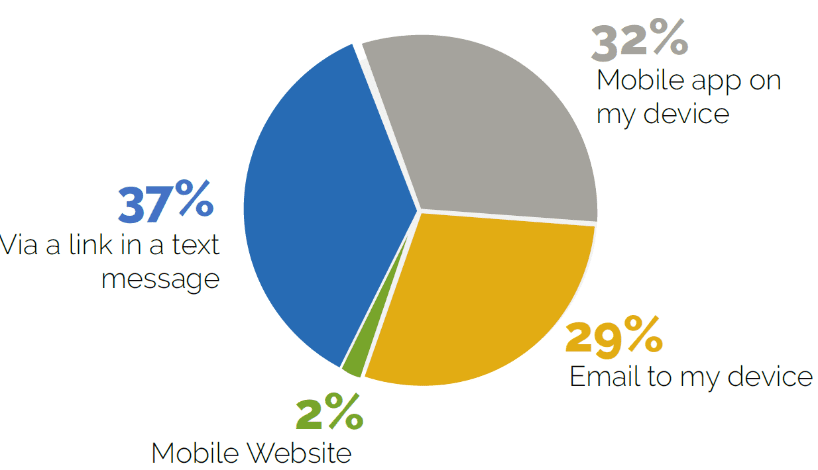 Retailers already know that mobile marketing offers a range of channels — email, text, app —that should appeal to consumers as their preferred way to receive and access mobile coupons and offers. Retailers that provide an omnichannel approach on mobile have the opportunity to drive much higher engagement.
Retailers already know that mobile marketing offers a range of channels — email, text, app —that should appeal to consumers as their preferred way to receive and access mobile coupons and offers. Retailers that provide an omnichannel approach on mobile have the opportunity to drive much higher engagement.
Recent CodeBroker research on mobile engagement has tapped into the lifestyle needs and preferences of this market through a survey of 1,500 consumers around the United States. Most respondents (57%) were between 22 and 37 years of age; 53% were female and 47% male.
The findings support the need for retailers to employ all available mobile channels, given that using only one channel limits choice and may exclude a segment of the market.

Consumers’ preferred way to receive retailer messages promoting sales, discounts and coupons on mobile devices. | graphic: CodeBroker
Here, we look at four major findings that can lead to best practices to better engage consumers with retailer-generated special offers.
- Consumers evenly prefer email and text as communication channels.
While promotional text messages are certainly a popular form of communication, email is still very much alive. In fact, email takes a marginal edge over text as the most preferred way for consumers to receive mobile coupons (35.24%), followed closely by promotional text messages (34.85%). While these numbers are likely to shift more to text, for now, retailers are wise to ensure that consumers have a choice of how they wish to receive mobile offers.
While many retailers rely on mobile apps to push messages, only a fair number of consumers (23%) actually prefer to receive promo offers by apps.

Consumers’ preferred way to receive mobile coupons. | graphic: CodeBroker
- Consumers react more — far more — to receiving texts about coupons than about new products or special events.
SMS moves the needle when it comes to boosting sales. When asked which type of text message they find most valuable to receive from retailers, coupons were most preferred overall, with more than 53% identifying mobile coupons as their top choice, followed by 35% of consumers who find a sales announcement or discount most valuable to receive from retailers. The remaining 12% of respondents were about evenly divided between receiving texts for new products and special events.
- Consumers are willing to give up personal details in exchange for value.
Privacy is certainly top-of-mind these days and virtually all consumers are concerned about the privacy and security of their personal data. Still, these same consumers find it hard to pass up a high-value offer and will exchange some personal data for the opportunity to receive high-value mobile coupons. In fact, 75.49% said they would be willing to provide this information to receive a high-value mobile coupon.
- Consumers like to receive loyalty rewards through text or a mobile app.
Rewarding consumer loyalty through rewards programs is a popular way for retailers to stay connected with customers and keep them coming back to make additional purchases.
Most consumers (75%) are likely to participate in a loyalty program if they can access rewards on their mobile devices. However, they differ on how they wish to access rewards, with 37% of consumers preferring to receive a link in a text message and 32% via a mobile app. The third-most preferred option is via email to their device (29%).
What doesn’t resonate with consumers? Rewards received through mobile web sites — only 2% indicated a preference for this form of access.

Consumers’ preferred way to access loyalty rewards on mobile devices. | graphic: CodeBroker
An important takeaway here is that to be most effective, retailers need to apply all mobile channels to address the needs of each member. Consumers clearly place high value on receiving mobile coupons and retailers are in a great position to capitalize on this.
Tracking the effectiveness of these approaches can help retailers drive higher levels of engagement.
Dan Slavin is CEO and co-founder of CodeBroker, a provider of mobile marketing solutions. He was CEO of Framework Technologies, VP of Open Market, and CEO of International Testing Services. He earned a BS in Electrical Engineering from Yale and an MBA from Harvard. You can reach him at dan.slavin@codebroker.com.










